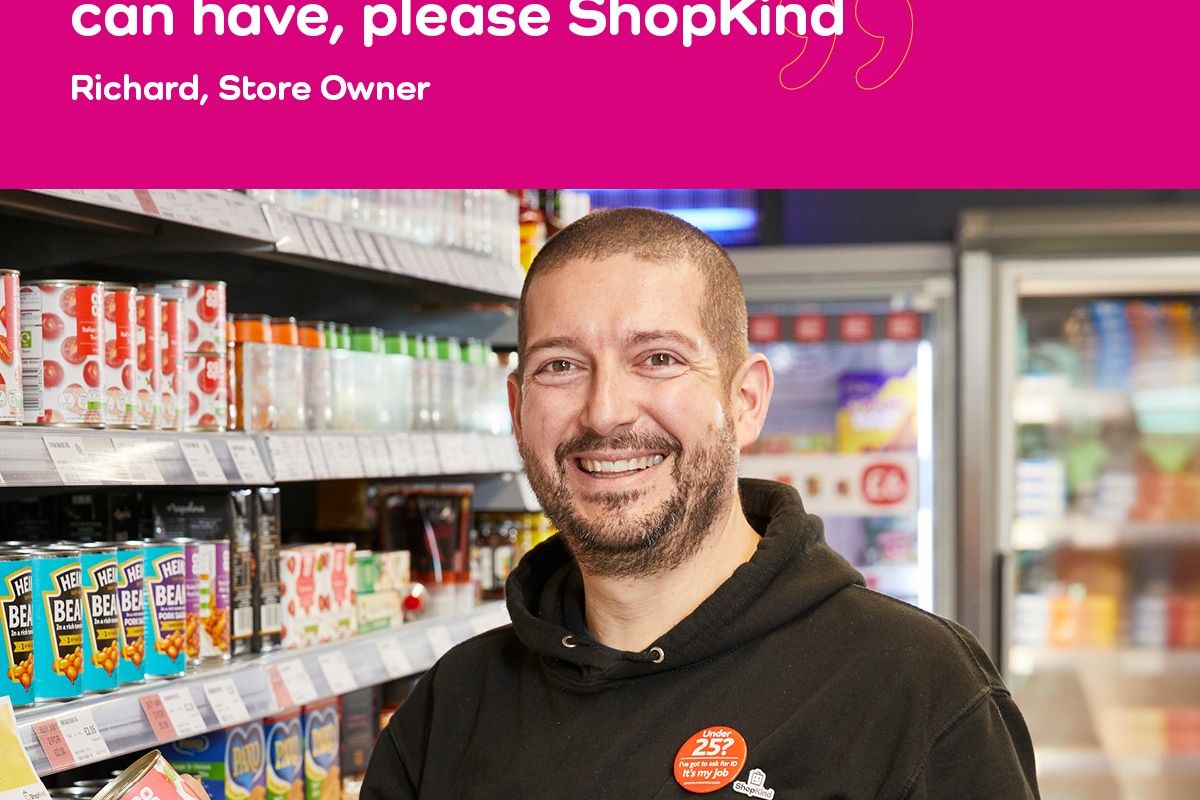Leading high street retailers, the Home Office and industry groups have come together to support #ShopKind Week, taking place on 6 – 10 May.
The #ShopKind campaign aims to remind customers about the importance of being considerate to shop workers and each other. UK-wide polling highlights that 31 per cent of customers are more anxious when they shop and 36 per cent of customers have witnessed violence and abuse towards shop worker while shopping.
The British Retail Consortium’s annual Crime Survey shows that there are over 1300 incidents of violence and abuse every day in the retail sector. Figures from the Association of Convenience Stores’ (ACS) annual Crime Report also show that almost 9 in 10 colleagues working in local shops have experienced verbal abuse over the last year.
The most frequently cited triggers in the ACS report were:
- Encountering shop thieves
- Asking customers to verify their age
- Refusing to serve intoxicated customers
The #ShopKind campaign is backed by the Home Office and supported by over 100 leading high street retailers, the nation’s shopkeepers and trade union Usdaw.
Last month, the government announced that it would be introducing a separate offence for assaulting a retail worker, building on previous sentencing guidelines that made assaulting someone working in a store an aggravated offence.
This week (6-10 May) retailers are reminding customers to ShopKind in stores and acknowledge the important role of shopworkers to communities.
“Colleagues in shops are there to help and deserve to be treated with respect, and there is never a good excuse to be abusive towards them,” James Lowman, ACS chief executive, said.
“We’re pleased that there is such widespread continued support in the retail sector and from the Home Office for the Shopkind campaign, which we hope will urge frustrated shoppers to think twice before an incident escalates into abuse.”
Paddy Lillis, Usdaw general secretary, said: “Retail staff are key workers delivering essential services in every community and we stand together to say that abuse should not be a part of their job. We need better co-ordination to ensure that retail employers, police and the courts work together to make stores safer and give staff the support and confidence they need to report incidents. We welcome Shopkind as a week of action and a great step towards that aim.”
Paul Gerrard, campaigns, public affairs and board secretariat director at Co-op, said: “Retail workers work hard to serve and support communities, and while the vast majority of shoppers appreciate the vital role they play, the ShopKind campaign sends a message to those who think it is OK to abuse and attack shopworkers, or carry out acts of anti-social behaviour, that it really is unacceptable and will not be tolerated. With new and returning Police and Crime Commissioners (PCCs) receiving fresh mandates through last week’s elections, PCCs are urged to ensure that retail crime - which blights communities and harms shopworkers physically and mentally - is prioritised and successfully tackled in their communities.”
Helen Dickinson, chief executive of the British Retail Consortium, said: “The appalling level of incidents of violence and abuse against our retail colleagues means the #ShopKind campaign absolutely vital. Those facing these confrontations are ordinary, hardworking retail colleagues - teenagers taking on their first job, carers looking for part-time work, parents working around childcare. No one should ever go to work fearing for their safety. We remind customers to shop kind and be respectful to retail workers and fellow customers.”
National Business Crime Centre Lead Superintendent Patrick Holdaway said: “Shop workers play a key role in our local our communities yet every day we know many of them face verbal and physical abuse. The NBCC is working hard with police and partners to make retail spaces safer for employees and customers. The ShopKind campaign is an important reminder to be kind to the people working in retail who are there to help us and to show shopworkers that they have the support of their employers, the police and the public.”
Retailers looking to get involved with the campaign during #Shopkind Week can download supporting materials from the National Business Crime Centre website.



